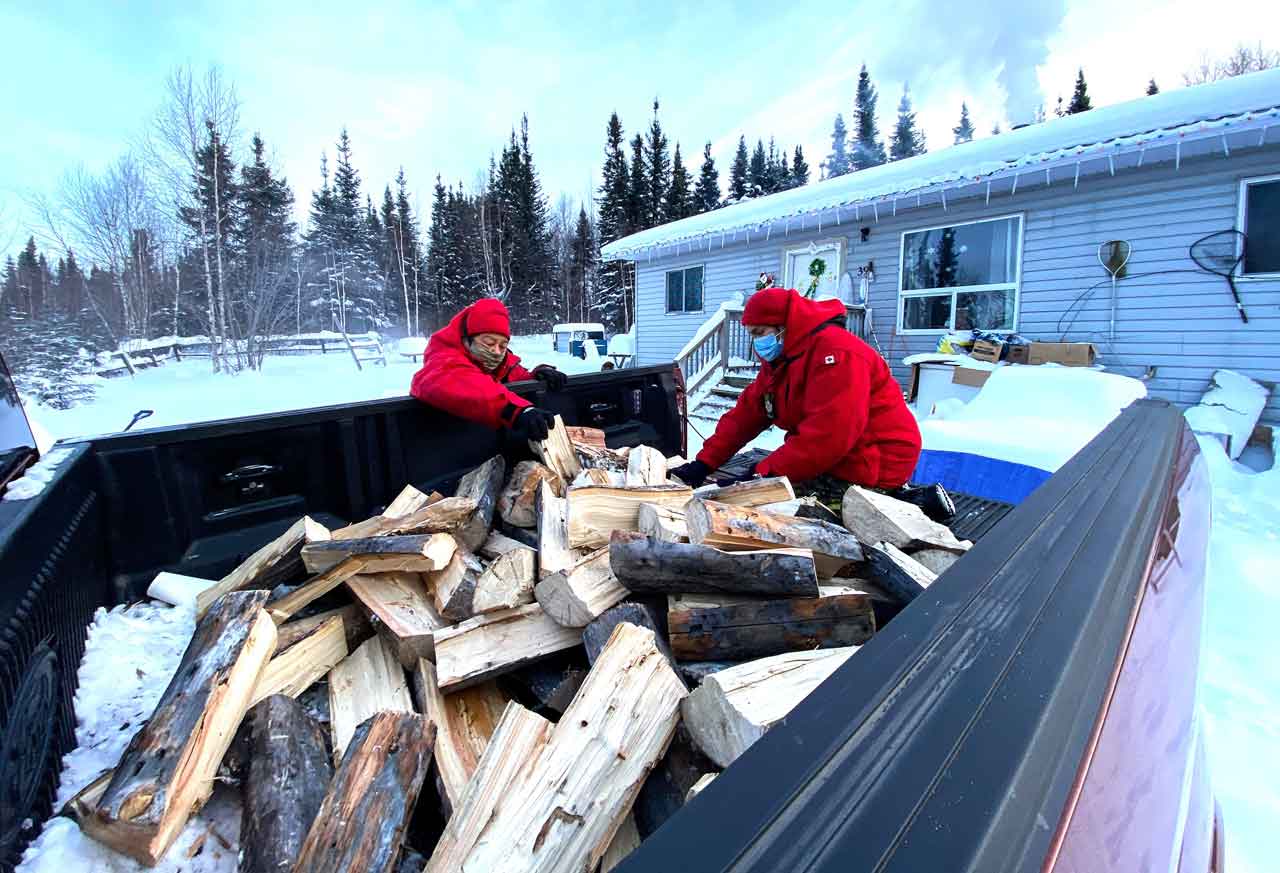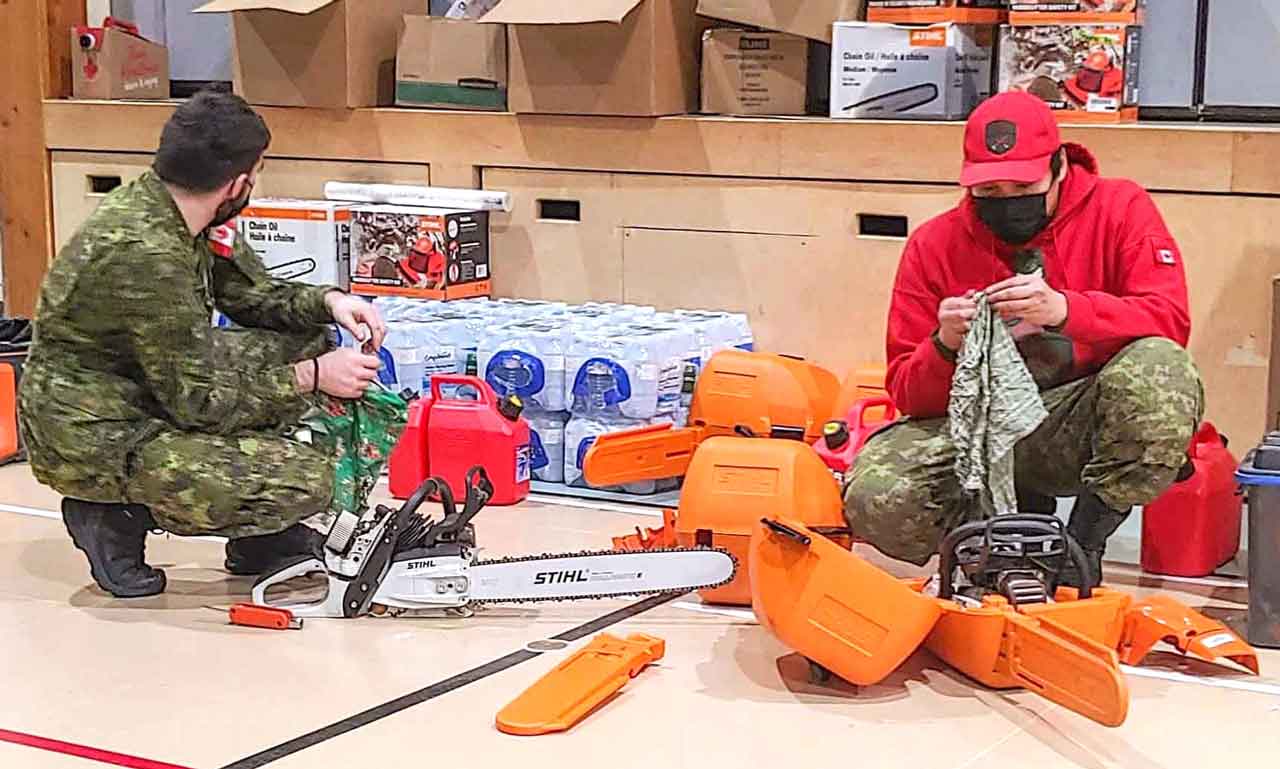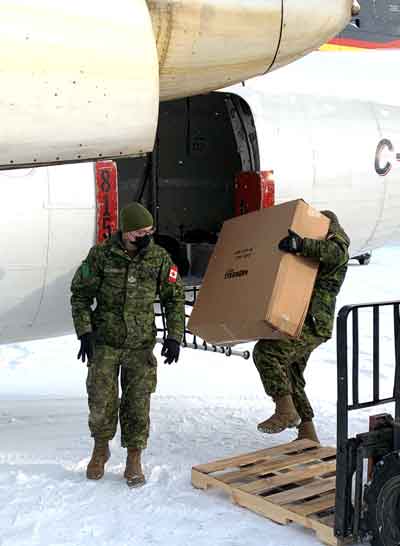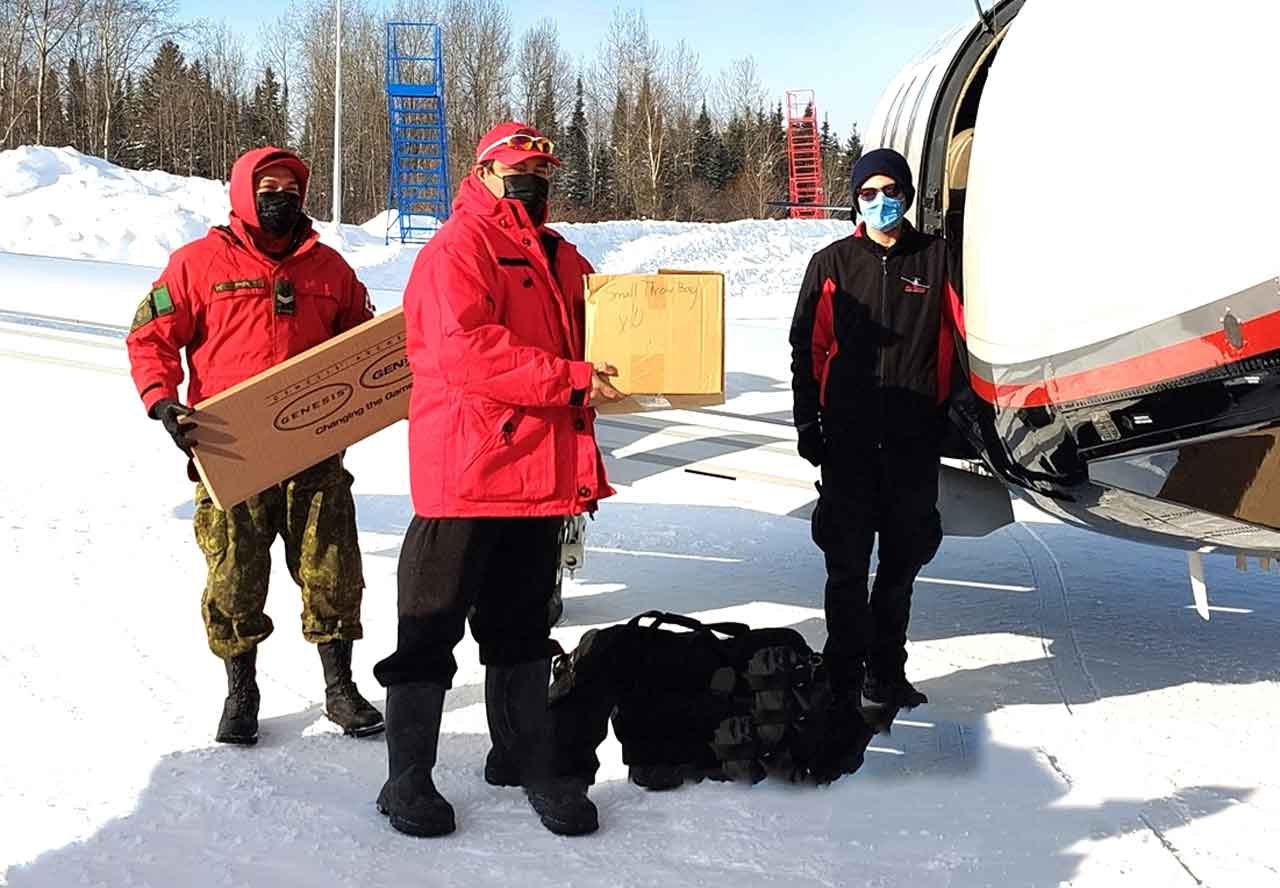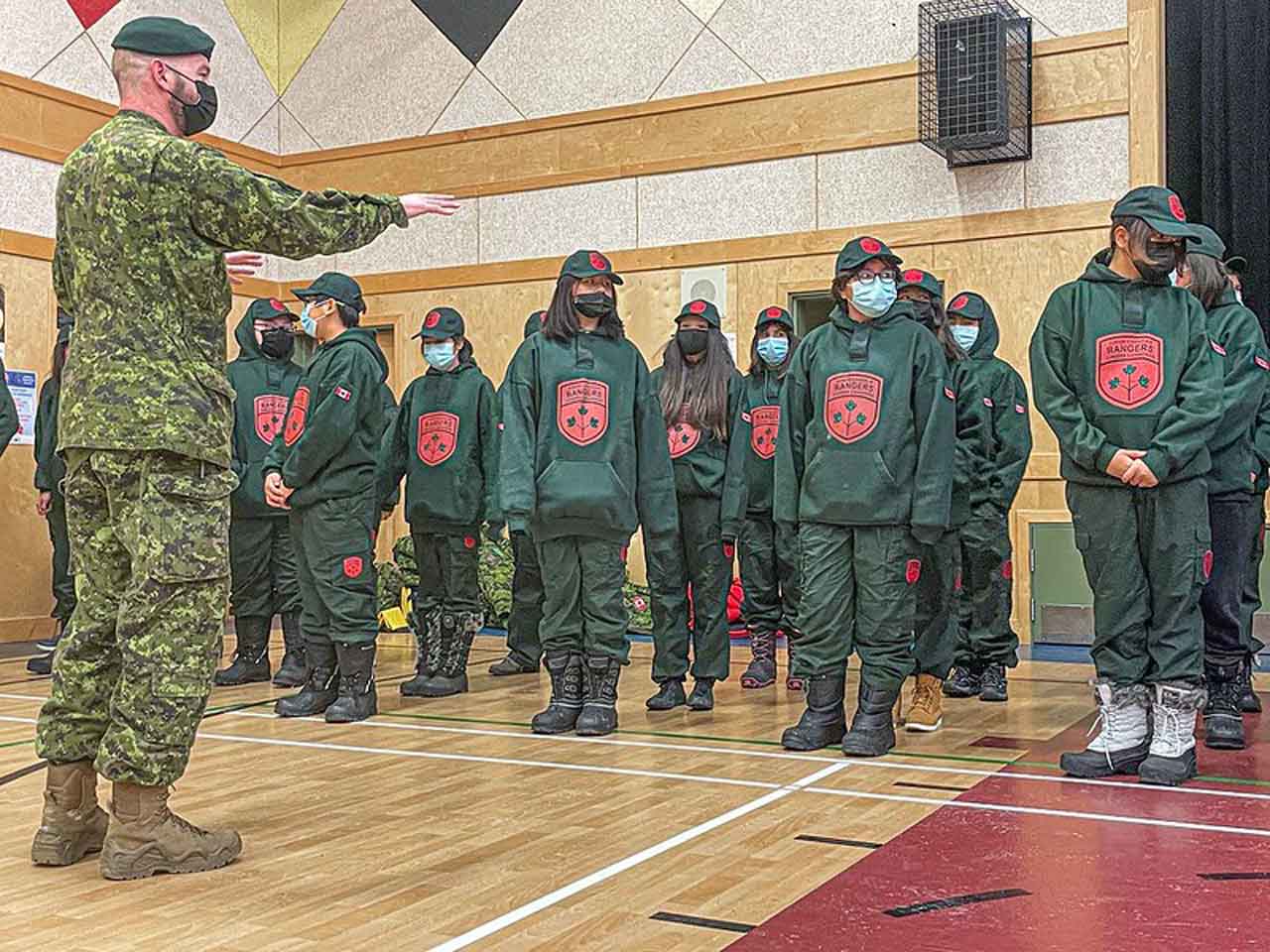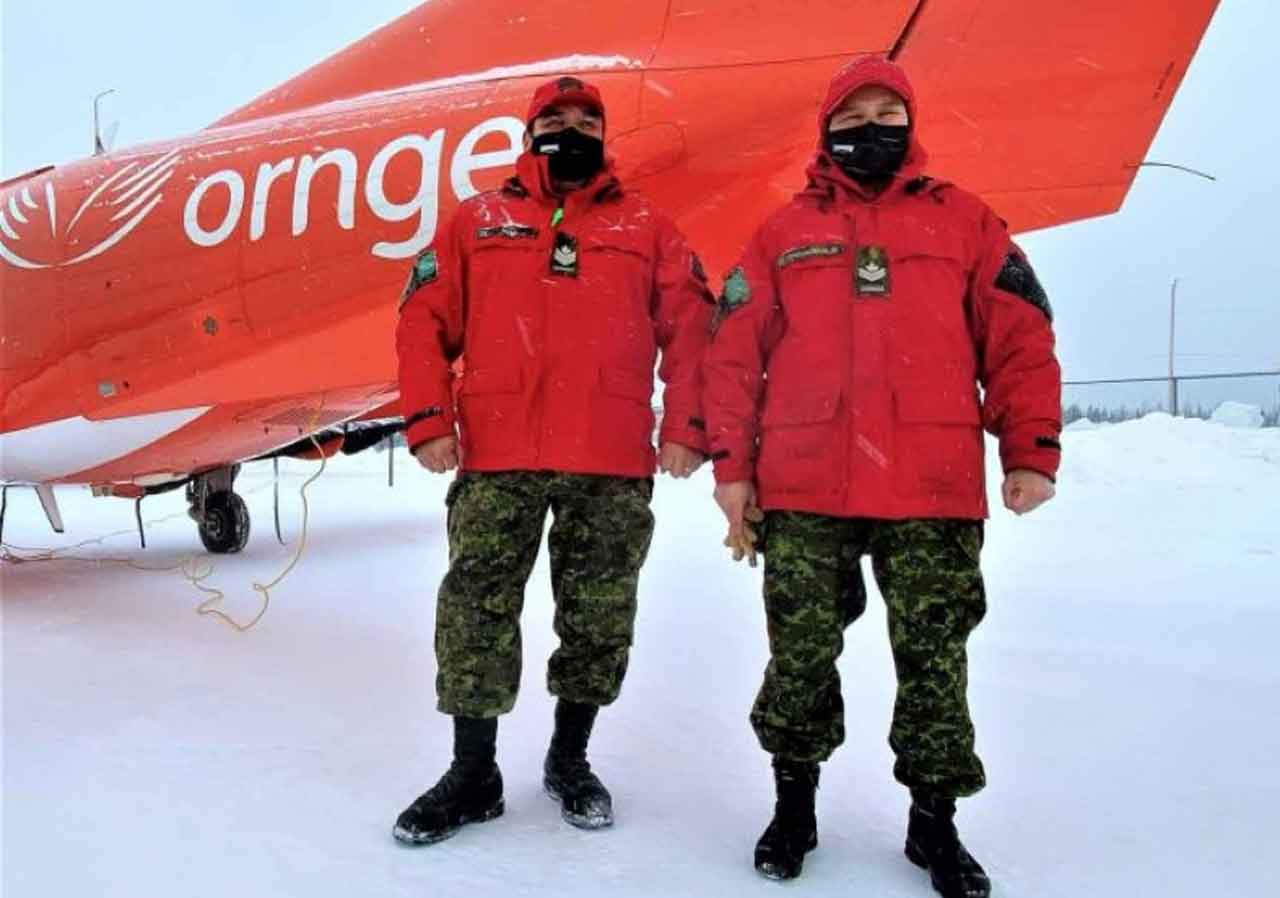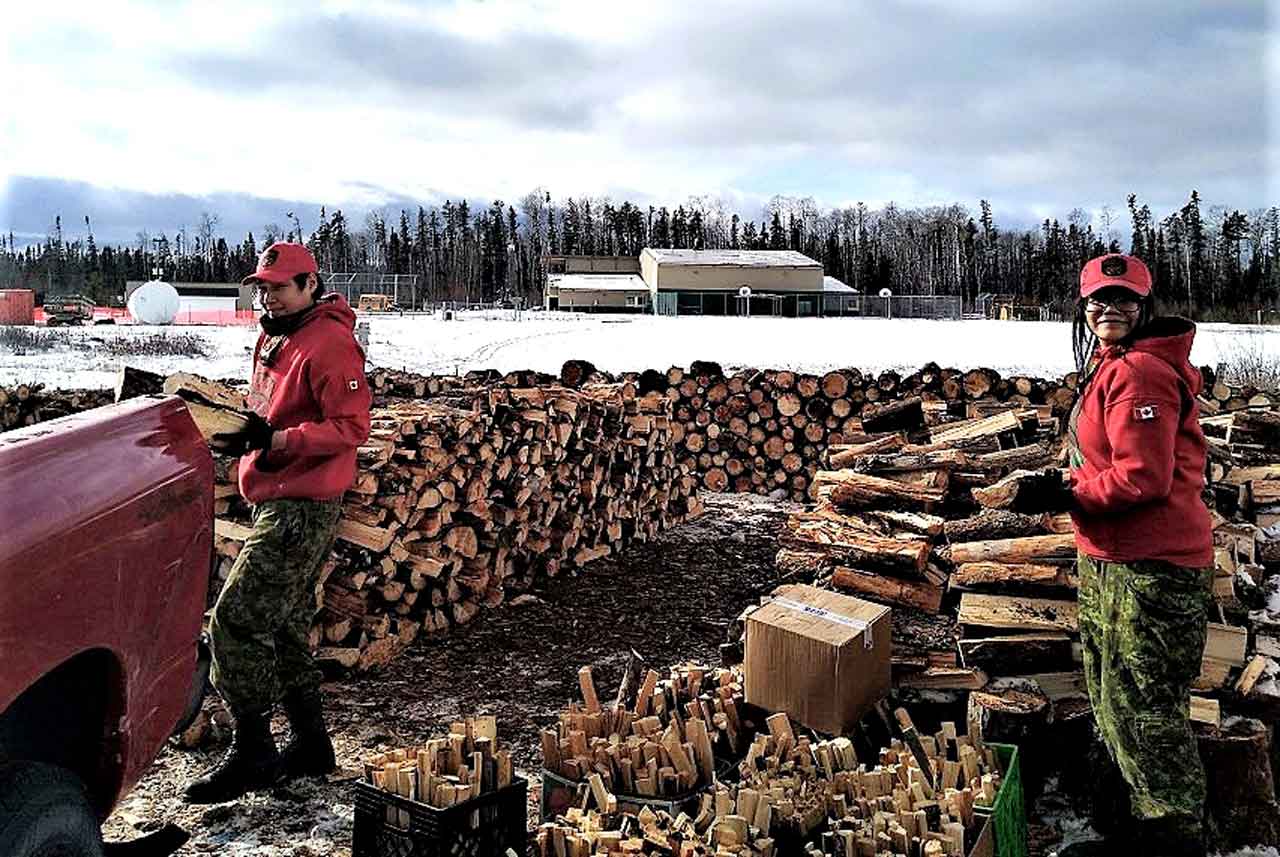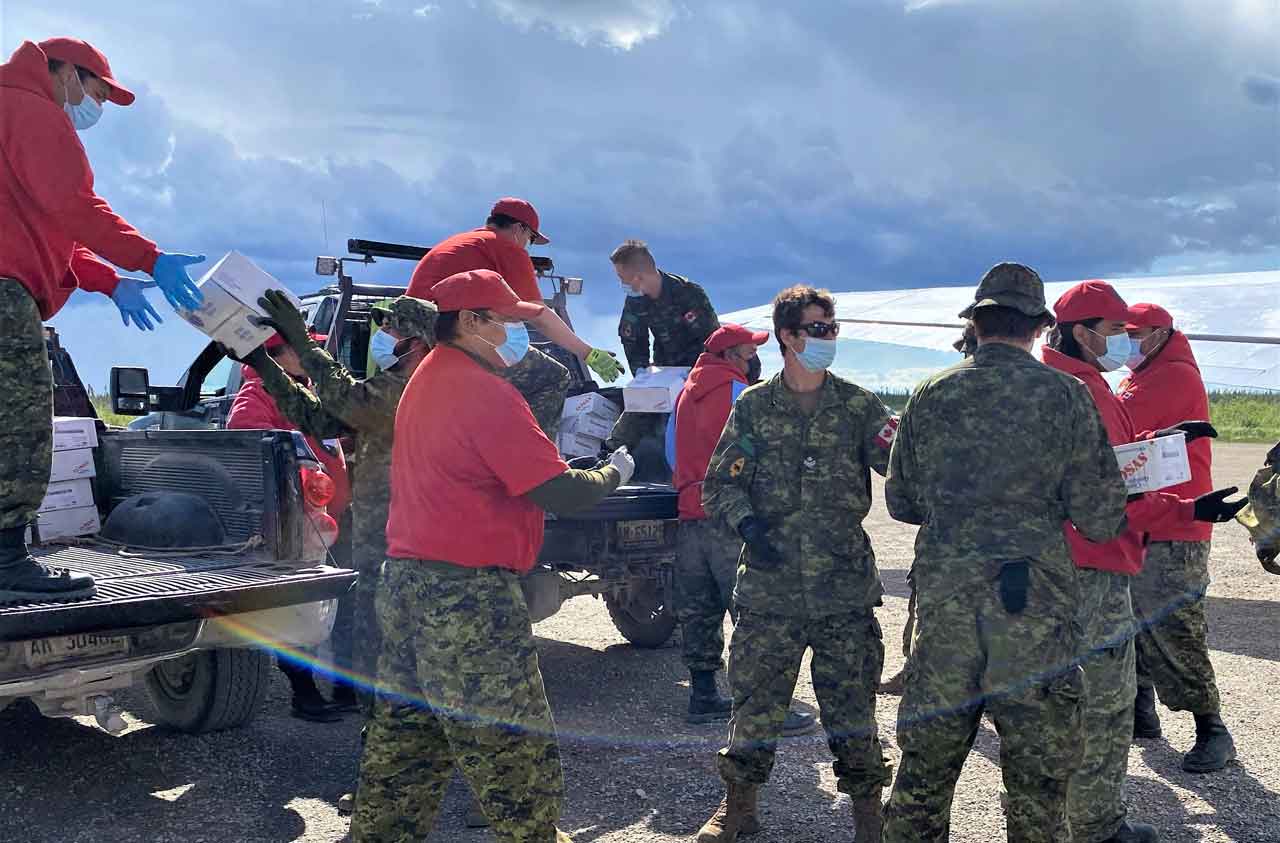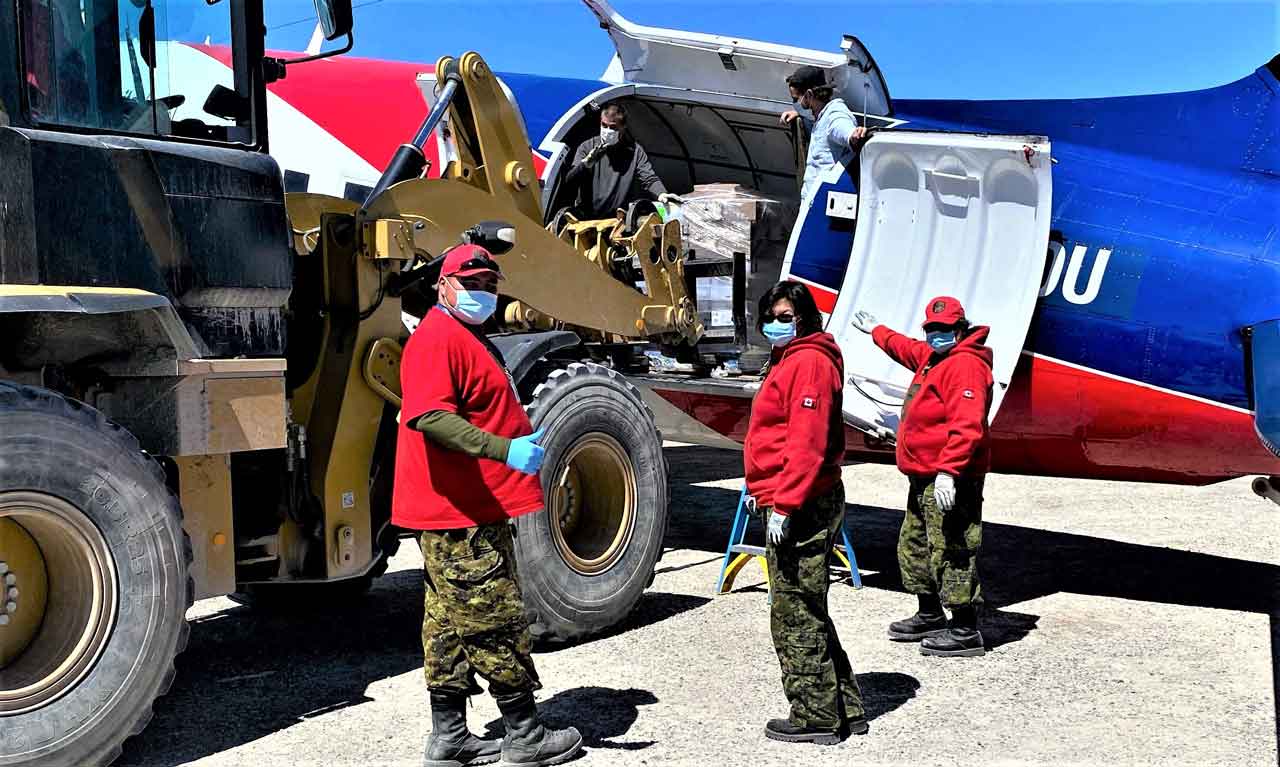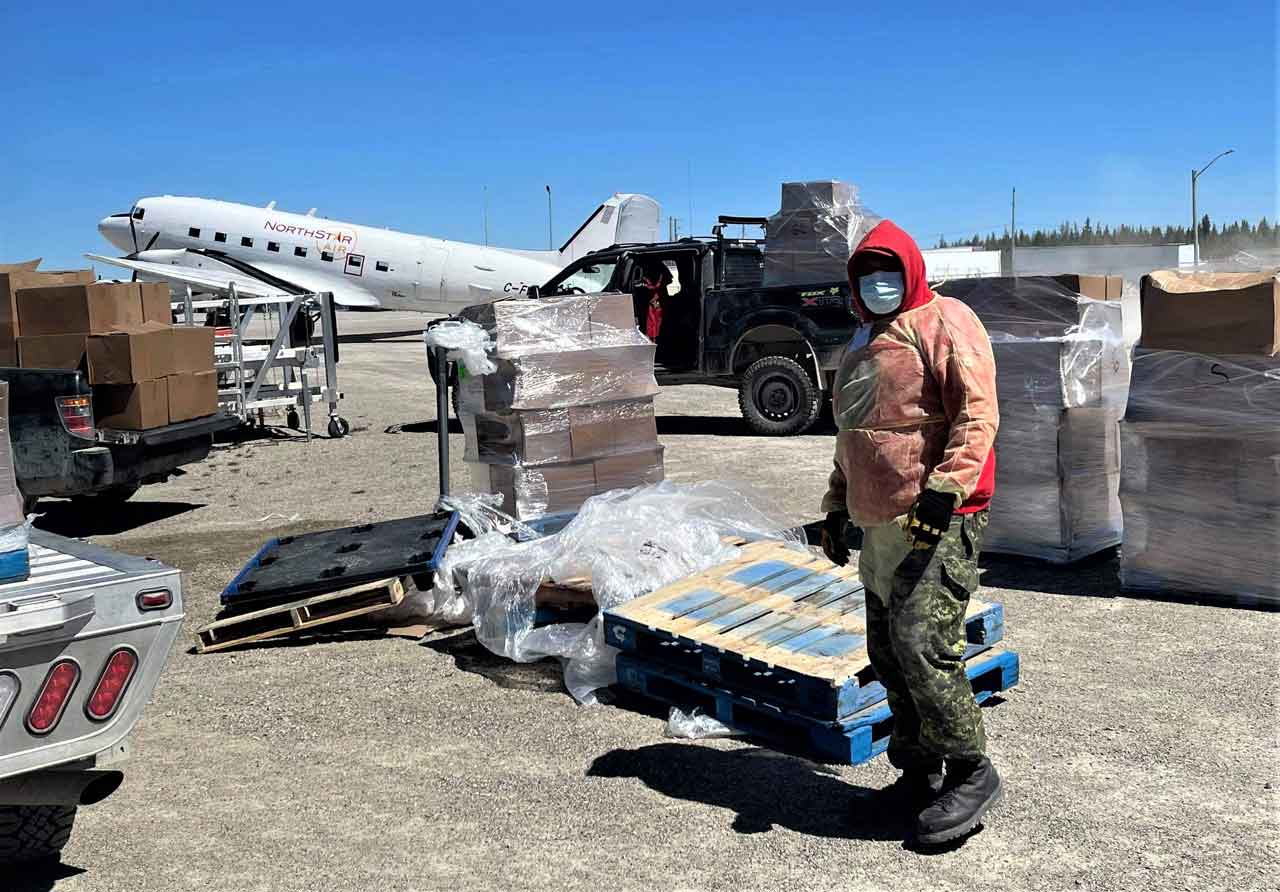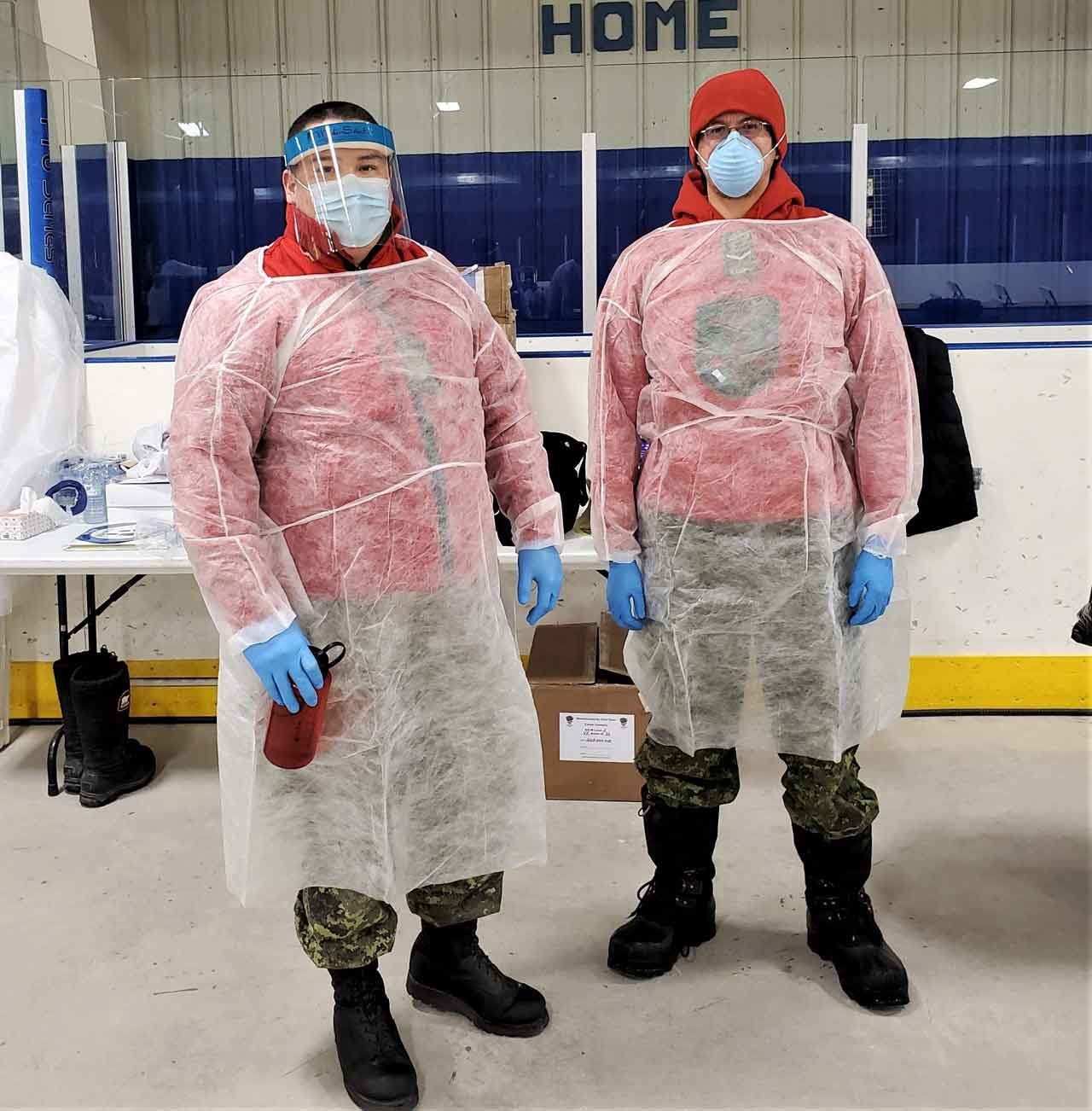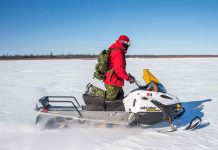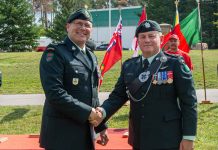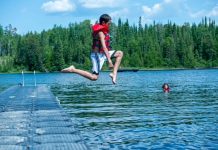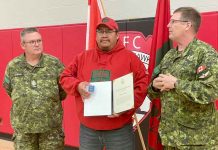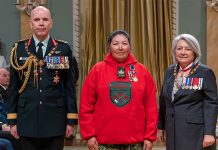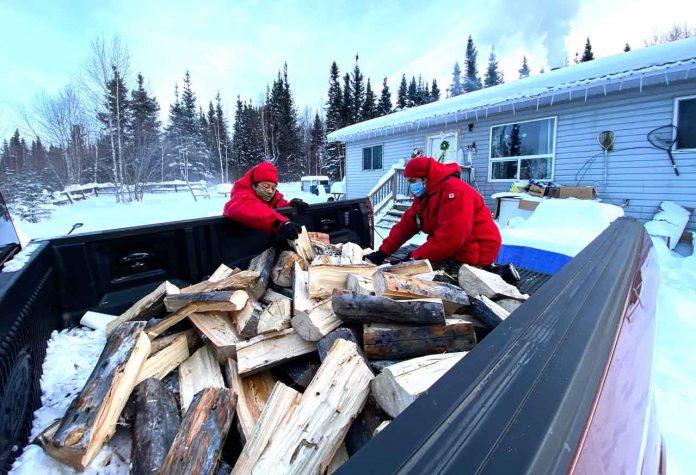
By Peter Moon
The Canadian Rangers of the Far North of Ontario are getting back to their normal duties after completing their busiest period of activity since they began operations in Ontario in 1994, according to their commanding officer.
The Rangers, who are part-time army reservists, were on continuous active duty from March, 2020 until May of this year, providing a range of crucial supports for remote and isolated First Nations during the COVID-19 pandemic. Many of the affected First Nations did not have the resources to deal with the pandemic and asked for assistance from the Rangers.
The Canadian Army has Rangers in 29 First Nations across the Far North of Ontario.
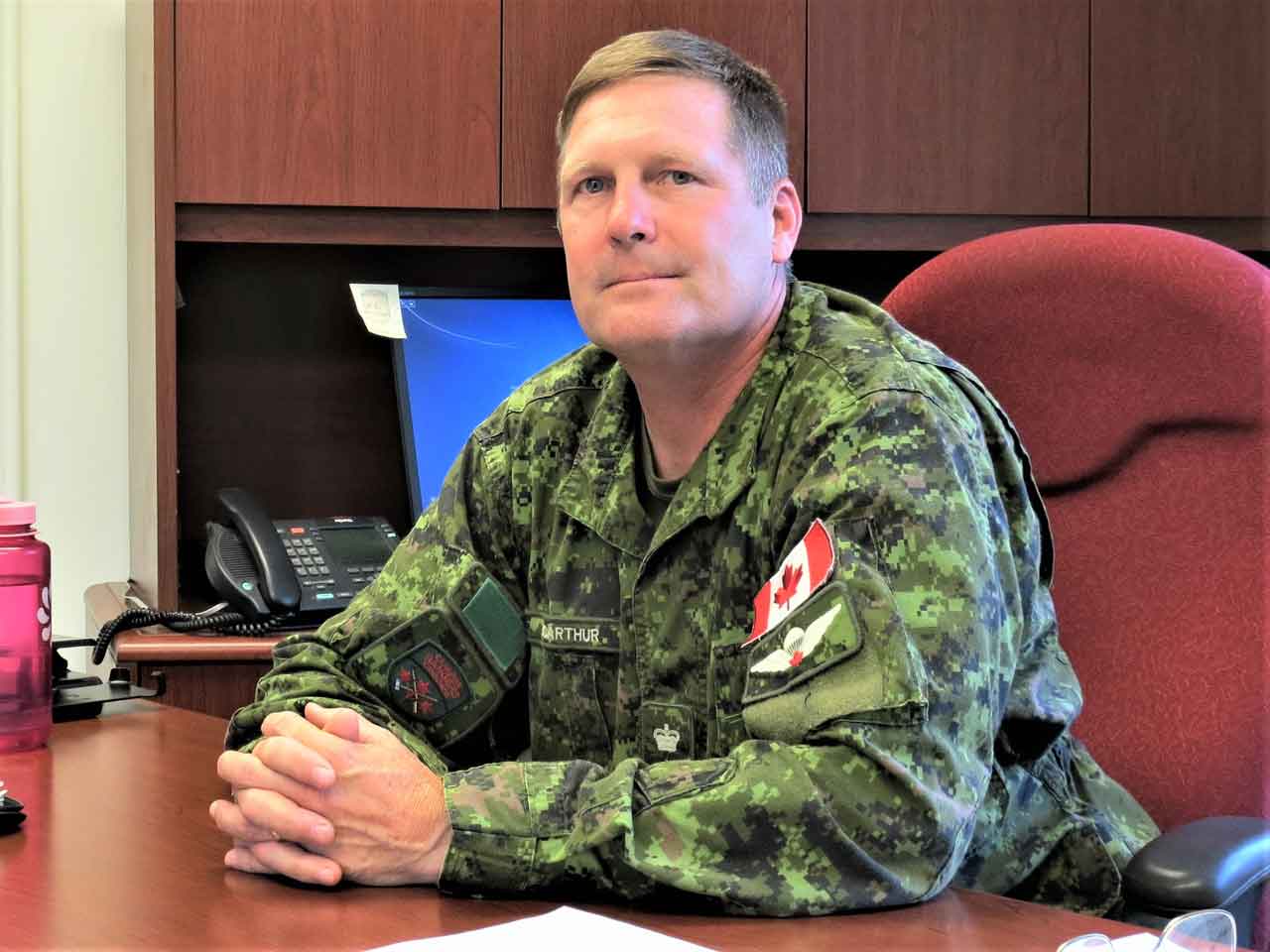
credit
Sergeant Peter Moon, Canadian Rangers
“We had more than 300 Rangers on full time duty at one time out of our total strength of 700,” said Lieutenant-Colonel Shane McArthur. “But we rose to the challenge and the Rangers and our headquarters staff here at (Canadian Forces Base) Borden did a great job.
“At one time we were the busiest small unit in the Canadian Army. What we accomplished with the size of our unit was outstanding and noteworthy. I am very proud of the Rangers and the headquarters staff.
“The feedback I got from the chiefs and councils was that they were very grateful, very pleased with our help. We did the best we could with what we had and the accolades kept coming from the chiefs and councils.”
When the First Nations were hit by COVID members of their local Ranger patrol were placed on active duty to assist the band’s hard pressed staff. They liaised with the chiefs. Patrol members worked to help victims of COVID, assisted in quarantining them and their families, cut and distributed firewood, delivered food and water, and assisted with supplying other essential day to day needs.
The Rangers used their military training to help organize the communities when members of regional health authorities visited them to provide vaccinations. The Rangers’ language skills were often invaluable as was their cultural knowledge and knowledge of their communities.
“We were being asked to do more and more for longer and longer,” said Lt.-Col. McArthur.
One solution was the creation of Ranger Go Teams, mobile teams made up of Rangers who flew into First Nations when the local Rangers needed additional Ranger help. They also flew into First Nations that did not have a Ranger patrol.
To add to the difficulties of providing their unique assistance, many Rangers and headquarters staff at Borden got COVID. They and their families had to quarantine.
“That created challenges but we learned to live with it,” Lt.-Col. McArthur said. “We found the heavy work load and the problems COVID created in the communities led to many stresses and we had to develop mental health supports for those affected. We are working to add additional mental health supports. We had people who were more tired than they realized.”
While COVID was consuming massive amounts of their time the Rangers had to continue providing their normal emergency supports, such as searches for missing people. The Rangers do 50 to 60 searches a year. They provided help with forest fires that threatened communities, and conducted patrols of major rivers that threatened to flood during break up, and force evacuations of several First Nations.
The Rangers are now resuming their regular duties. They are busy recruiting and conducting training.
They are re-activating the popular Junior Canadian Ranger program for boys and girls aged 12 to 18. After being cancelled for the last two years because of COVID, the annual Camp Loon that provides specialized leadership training for selected Junior Rangers will be held again next month.
(Sergeant Peter Moon is a Ranger with the 3rd Canadian Ranger Patrol Group at CFB Borden.)

